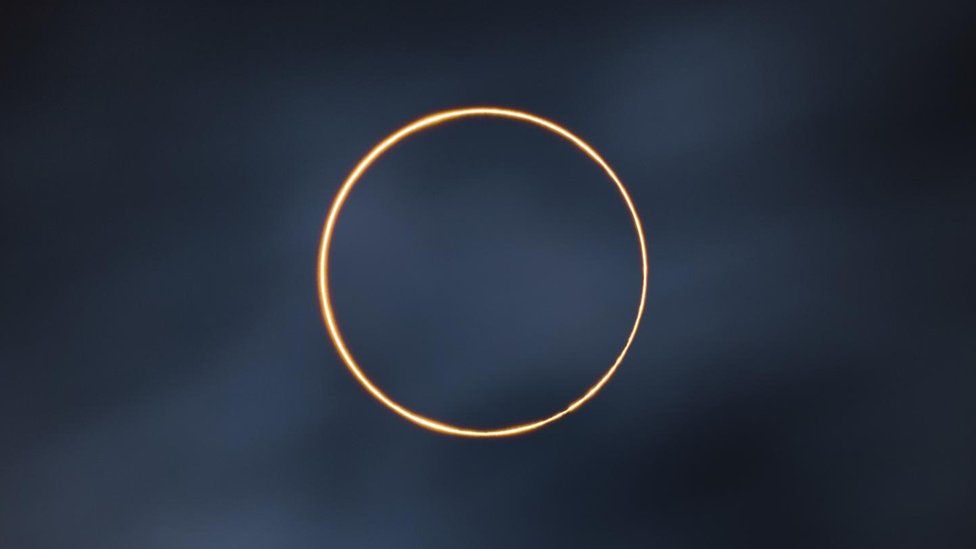Astronomy Photographer of the Year winning photos
- Published

Take a look at the winners from this year's Astronomy Photographer of the Year. This amazing picture by Shuchang Dong was crowned the overall winner of the competition. Called The Golden Ring, the image shows an annular solar eclipse taken in Tibet on 21 June 2020.
Image source, 至璞 王
This image was captured and created by 15-year-old 至璞 王 from China - who took home the top prize in the Young Competition. It's a composite image - which means lots of different pictures all put into one photo - of the Sun, the Moon and the planets of the Solar System taken during the year of the rat.
Image source, Terry Hancock
This beautiful rainbow image was captured by Terry Hancock from the UK. It shows the California Nebula, also known as NGC 1499, and the photo was taken over seven nights. Terry took home the top prize in the Stars and Nebulae category.
Image source, Zhong Wu
This incredible image took home the top prize in the Galaxies category ad was captured by Zhong Wu from China. It took two years to complete and is a 360 degree mosaic of pictures taken of the Milky Way galaxy, from China and New Zealand!
Image source, Dmitrii Rybalka
This mesmerising snap took home to top prize in the Aurorae category. Captured by Dmitrii Rybalka from Russia, he captured the image when he was on a night shift looking after the ship he works on.
Image source, Paul Eckhardt
This incredibly lucky shot was captured by Paul Eckhardt in the US, and shows the moment the Space X Falcon 9 rocket flew in front of the Moon during take-off. He took home the top prize in the Best Newcomer category, and said he's never been so excited to take a picture before.
Image source, Frank Kuszaj
This photo snapped the top prize in the Planets, Meteors and Comets category, and was actually a happy accident! Frank Kuszaj had set up his camera to capture distant galaxies, but instead was surprised when a quadrantid meteor soared right in front of his lens!
